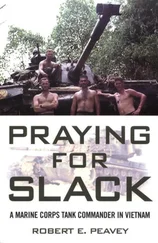So we sent for Brother Tillotson. But when he arrived, he arrived with Sheila. His posture was quite defensive — his body drawn up to its full six feet, four inches, and his arms protectively around her shoulders — and he said, “If you have anything to say, you can say it to both of us. We are man and wife. We are a unit. We are a team. We won’t be divided and conquered,” and went on this way for quite a long time, with plenty of pious talk about two becoming one flesh and so on, and on, and on. I don’t know about the other men, but watching him hold forth, seeing the gray in his hair, seeing his size alongside her tininess, I was struck (perhaps unfairly) with the idea that what we were facing here was not much more than a young and immature girl unfairly saddled to a man closer to pasture than he could imagine, and I was ashamed and unwilling to discuss such a thing as their noise in her presence. Perhaps you, Ervin, are a man more worldly than I am or than any of the other men in that room were or are, but my suspicion is that you would have been taken with these kinds of thoughts yourself, and my shame extended outward, and expanded until it took unto itself the shame that they themselves ought to be feeling for shacking up, but which they clearly did not feel, since they were holding forth daily in postures of such pride.
My thinking about these matters has become bothersome to my own spirit. Ervin, how does a person even begin to address such shame, since it cannot be undone without entering into grave sin — what God has joined together let no man tear asunder, and all that? In the weeks that have followed, Brother Tillotson has rejected every attempted pulling-aside to discuss the matter, holding to his line that his marriage is not a subject for addressing to anyone except both parties, together, and rejecting the rejoinder that his duty as the man and therefore the head of the household is to be the representative of the household in matters that ought not be discussed in mixed company. Meantime, Brother Tillotson continues to minister to the co-op farmers, teach them how better to cultivate their vegetables, raise their rabbits, tend their fish ponds, negotiate with buyers and sellers, and invest their earnings in their own homesteads for the purpose of building a future for their families. He prays with them, trains their leaders, travels with their leaders to seed other villages with the tree of civilized life, and all of it toward the ends we are all of us pursuing — the glory of God and the promotion of His eternal Kingdom. It is as though there are two Brother Tillotsons — the one who has made family of strangers, and the one who has no time or patience for the granting of simple human dignity with the true family of neighbors and friends he lives among here at the mission. Part of me is inclined to stay silent and grant to Brother Tillotson the great grace that bears witness to the grace God offers us all. But part of me is weary, partly from my heart for those who are hurting here in Haiti, partly because neighborly peace has been breached here in the mission, partly because of my growing concern for the blind spots in Brother Tillotson’s own character, partly because of my worry for the girl Sheila, and partly quite frankly from the absence of the silence we all need in order to rest properly at night, because, Ervin, the noises continue.
III.
Rev. T. C. Johnson, Baptist Mission, Koulèv-Ville, Haiti, to Rev. Ervin Medlock, Caribbean Region Director, Foreign Mission Board, Richmond, Virginia, February 10, 1986.
I’m sure news of the regime change is getting to you in dribs and drabs, and I send this dispatch with fervent prayers that it will be received. My first obligation is to report whether or not the mission has weathered the change in government safely. I’m sorry that I don’t know any other way to be but direct. It is my devastation, telling you that the Lord has taken Brother Joe Waddell and Brother Sam Tillotson to be with Himself in this hour. It was me and Brother Larry Garvey who found their bodies. It is no comfort to me that they passed while engaged in acts of service (trying to save the water station). We buried them this evening beneath the mango trees behind the hospital. I pray the circumstances surrounding their passings might be comfort to their families as time passes, but to me it is nothing but sheer agony to write you and tell you about it. Our good Henri is at the gate waiting to courier this letter to the MFI pilot in Port, and time is short. I will try to write more this evening, but I do not know when I will next have an opportunity to get an envelope out. Please pray for us.
Rev. Larry Garvey, Jr., Baptist Mission, Koulèv-Ville, Haiti, to Rev. Larry Garvey, Sr., University Baptist Church, Jacksonville, Florida, February 13, 1986.
The first thing we saw was the black smoke. Not the thin reeds of cooking smoke that rise throughout the village, but a thick, wide swath of smoke. Then voices arguing loudly. Then much shouting. Sam came running in from the village and said, “It’s started.” Brother Joe told us to close the mission gates. We had trouble closing them because someone drove an old pickup truck in front of one of them and started a small fire in the truck bed and left it there. We had to put out the fire, and we had to move the truck. Some of the maids and some of the drivers and some of the doctors and nurses from the hospital helped. We all helped. People began to throw rocks, seeing us close the gates. Others were trying to get inside. Sam wanted to let certain ones of them in. Brother Joe said no. They argued. Brother Joe pulled rank. Sam cursed at him.
By then, the women were running out of the mission buildings to see about the commotion. Brother Joe told them to go back inside. Sam said men were burning tires out by the road. We heard pistol shots. Sam said there were men in the village who knew how to make Molotov cocktails. He worried the mission would be a target. Brother Joe said the people would be with us because of our good reputation for taking care of them. Sam called him naïve. Everyone knew it was us who had built the new water station. The rumor in the village was that we had taken money from the government to build it. Brother Joe said that wasn’t true and the people in the village knew it wasn’t true. Sam said some people were saying Macoutes had delivered us the money in burlap sacks.
I’ve never once so much as thought about disrespecting Brother Joe’s leadership. But who knows the talk in the village better than Sam? T. C. and I urged Brother Joe to listen to Sam. Brother Joe said it didn’t matter if Sam was right or not. All we could do now was hunker down, turn off the generators, get the doctors and nurses locked safely in the hospital, get the other workers into the buildings, get the women and the children as far from the gates and the walls as possible, and pray. Sam said we should take all the extra food we had — all the hundred-pound bags of rice, all the vegetables, all the salted meats, all the boxed provisions — and set it outside the gate. Sam said he would go out there himself and tell everyone it was theirs to take, a celebration gift.
Brother Joe was very concerned about giving away the food. “The precedent,” he said. He forbid it. Like always, there was a standoff. Brother Joe must have thought T. C. and me would follow orders like always. But this wasn’t like always. This was an extraordinary circumstance if there ever was one. I looked at T. C., and T. C. looked at me. We decided that way. T. C. said, “Sam, let’s go on in there and start hauling that food out.”
Brother Joe gave me a Judas Iscariot look the way he can. He said, “Are you gonna forsake me, too?”
I said, “I’m not forsaking anybody, Brother Joe.” Then I followed Sam and T. C. into the storehouse and started hauling food.
Читать дальше












